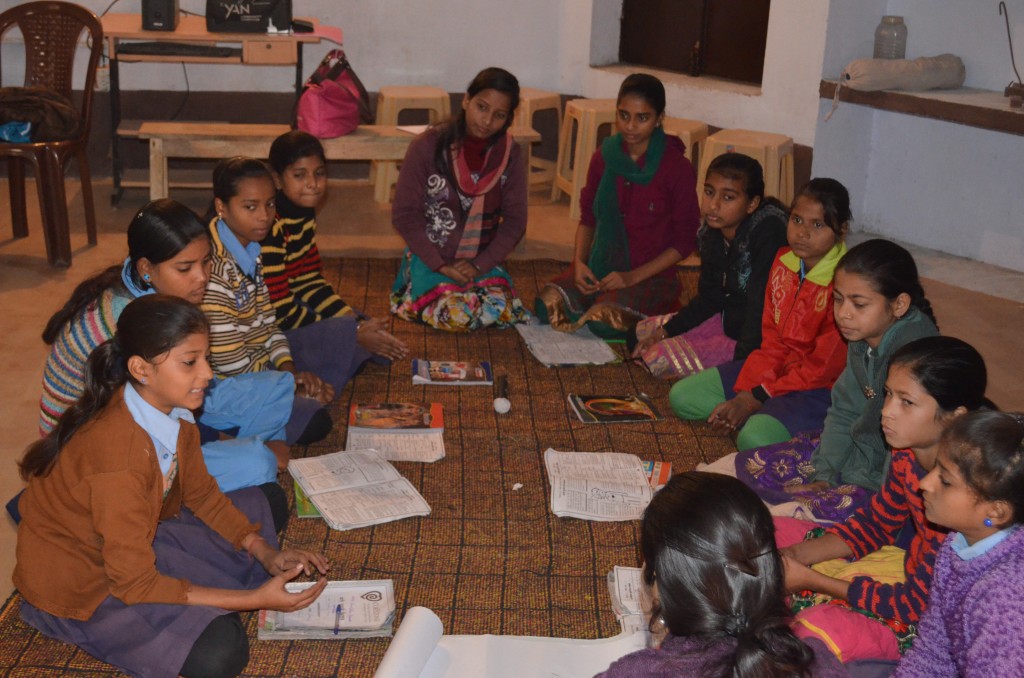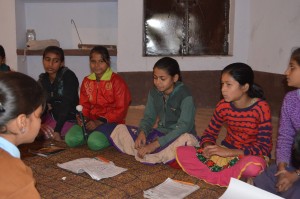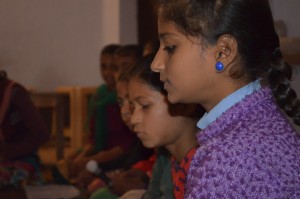Empowering Girls (I)
The capacity to bounce back and thrive in the face of adversity is not a natural talent or quality. Rather, it’s the result of a set of skills that can be learned. And no better has this been demonstrated in the impoverished state of Bihar in northern India.
I was amazed to see this in Bihar where most Indians see the state as a scourge, a state trapped in the dark ages, a place where time has stood still. What’s worse, girls are subjugated.
Despite the state’s rich mineral resources, most of its people live in tough conditions.
At a government run middle school in Maner, about 35 kilometers from the state capital Patna, school kids aged 12 to 14 have lined up for the assembly song.
It is a decrepit, old building but attendance is high and this can be seen that most show up on a cold wintry morning in January.
After class, these school children, mostly girls, are part of peer support groups led by female school teachers or women from their community during the school day. The classes are normally held twice a week – sometimes even more often than that.
The women talk about why it’s wrong to marry young girls off, how girls should never be subjugated and how they should be considered equals with their male peers.
It is a program which is quite fascinating. It is to train up girls in this state with the highest rate of child marriage in India and young girls are benefiting from this program.
A typical lesson combines 20 to 30 minutes of skill building followed by a group discussion and problem solving
I talked to Tanya Kaushaf, just 13, and she is happy to have gone through this program called Girls First. She finished the program last year that ran for several months.
“I have learnt to speak up and to speak my mind. I couldn’t do this earlier, I was scared. But not anymore. Earlier I did not like studying. Now my ambitions have changed. I have a goal in life,” she proudly asserts.
The girls in this group are giggly, jostling with excitement.
Like Tanya, 10th grader Komal Kumari, too, believes she has benefitted from the program. She is 14 years old.
“My mum used to scold me and I kept quiet. But now things have changed. She does not shout anymore. Ever since I got into this program I have become different. Now, I am sure that I want to be a teacher.”
Kumari, who used to be a shy girl according to her friends, is now bold and assertive.
Her mother Poonam Devi is proud of her daughter’s transformation.
“I feel so happy that Komal has become a tough person. I stitch clothes and do odd jobs to make a living. But now, seeing my daughter blossom, I hope she gets a good job.”
In many parts of rural India, girls are subject to gender-based discrimination. They are often denied an education but are instead forced into early marriage and child-bearing even before they outgrow their teen years.
Investing in education for girls can be one of the most potent weapons in the fight for greater social justice. Currently, there are 70 million child brides in the world, according to the NGO International Center for Research on Women or ICRW.
Author: Murali Krishnan
Editor: Marjory Linardy
_____
WTO RECOMMENDS
When girls are not any longer girls: The abuse of under-age girls in Latin and Central America
In Latin and Central America, there are many cases of young girls who have been raped continuously, since not everyone has respects the rights of minors. (From January 15, 2016)
Maiti Nepal – Giving Hopes and Dreams for Many Girls
Sita’s face beams with happiness as she dances (picture). After enduring severe hardship, a group of Nepali girls are now on a tour performing traditional dance across Germany, Austria and Switzerland. DW takes a look at how the Maiti organization offers them aid and shelter. (From September 26, 2015)
No place for girls in rising India
It is ironic that while India is one of the world’s fastest growing economies, many Indian women are still trapped in the dark ages. Just name it – female feticide, child marriage, sexual violence, dowry, domestic slavery and abuse top gender evils. It might not necessarily be in that order. (From September 24, 2015)









